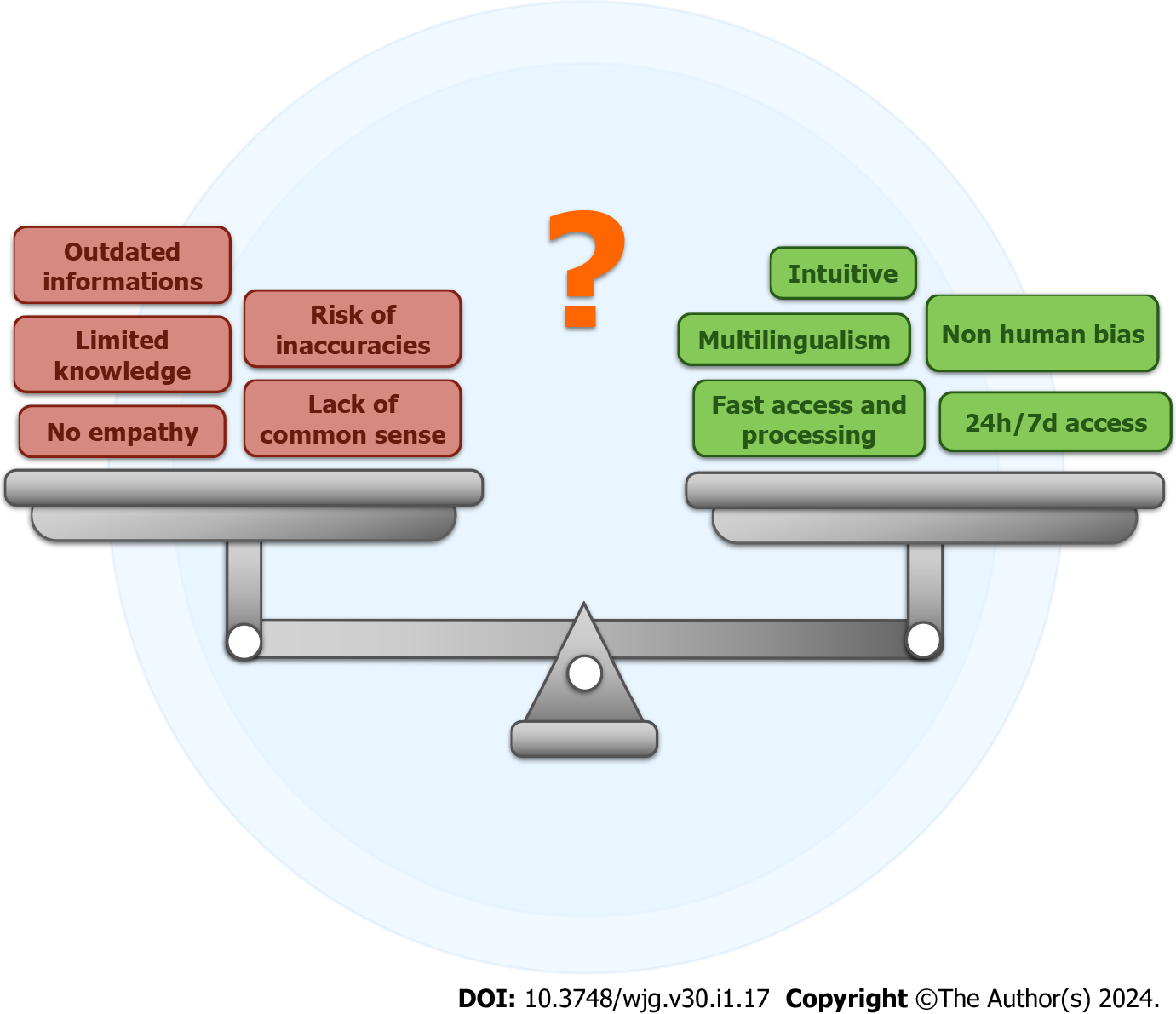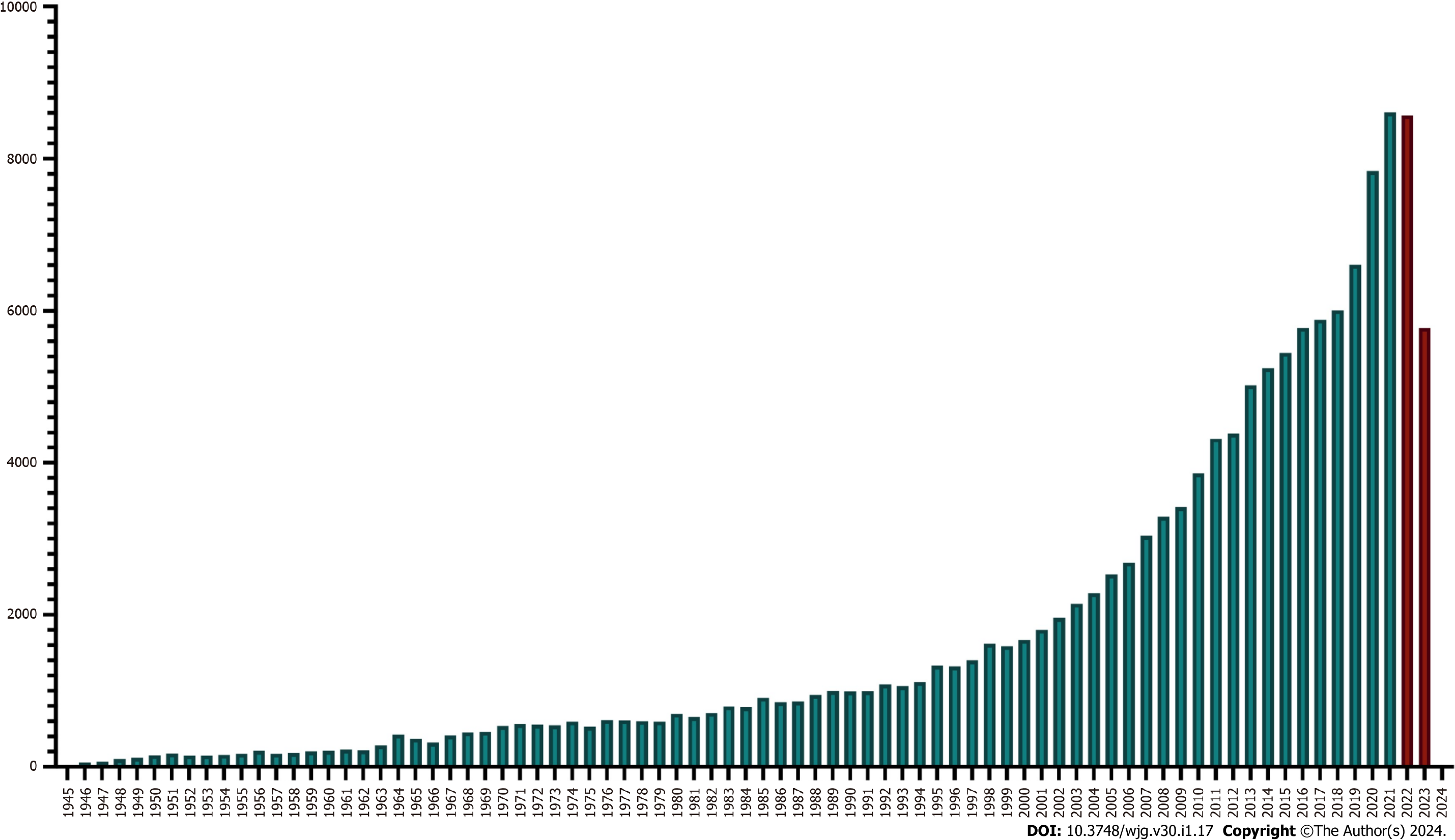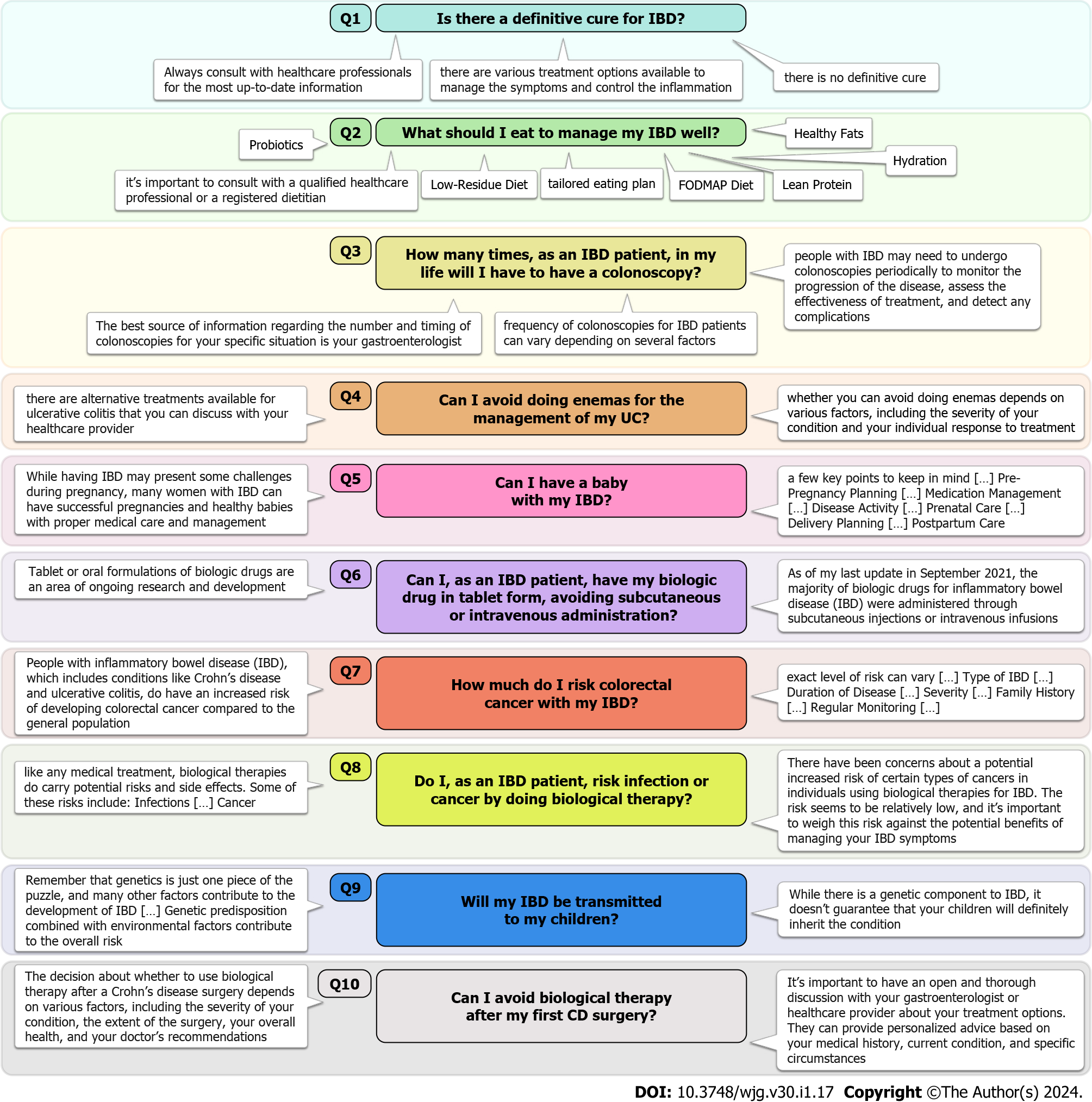Copyright
©The Author(s) 2024.
World J Gastroenterol. Jan 7, 2024; 30(1): 17-33
Published online Jan 7, 2024. doi: 10.3748/wjg.v30.i1.17
Published online Jan 7, 2024. doi: 10.3748/wjg.v30.i1.17
Figure 1 Main already posited advantages and drawbacks of Chat Generative Pre-trained Transformer.
Chat Generative Pre-trained Transformer (ChatGPT) is a large language model chatbot with interesting potential in producing medical information (MI), and it is open access and, therefore, usable by medical professionals and patients. However, several general aspects (i.e., without wishing to consider those related to the specific concordance between artificial intelligence-derived MI and medical recommendation) related to ChatGPT must be balanced when this phenomenon is applied to the patient.
Figure 2 Chat Generative Pre-trained Transformer lacks an update.
This graph collects all papers indexed in PubMed® by typing (on September 3, 2023, at 4:50 pm) the keyword “inflammatory bowel disease” since 1945. As can be seen from the graph, there has been a similar exponential growth until recent years. As stated in the outputs by Chat Generative Pre-trained Transformer (ChatGPT), the threshold for updating this system is until September 2021. From the analysis of this graph, computing papers indexed in 2022 and 2023 and papers ready for indexing in 2024 (i.e., excluding papers from October to December 2021), a number of 14346 papers (red colour) excluded from ChatGPT’s evaluation is calculated. ChatGPT does not have PubMed® as its sole training source but a wide variety of other sources. However, this graph gives an idea of how much informational load ChatGPT loses by providing potential out-of-date responses (considering only one database, i.e., PubMed®).
Figure 3 Representative textual excerpts of the outputs provided by Chat Generative Pre-trained Transformer in response to the inputs (Q1-10) prompted in this study.
The outputs, also shown in extended form in Table 2, have been summarized in this figure to provide a quick skim over Chat Generative Pre-trained Transformer’s responses concerning paradigmatic questions from patients with inflammatory bowel diseases, including patients with ulcerative colitis and Crohn’s disease. IBD: Inflammatory bowel disease; UC: Ulcerative colitis; CD: Crohn’s disease.
- Citation: Gravina AG, Pellegrino R, Cipullo M, Palladino G, Imperio G, Ventura A, Auletta S, Ciamarra P, Federico A. May ChatGPT be a tool producing medical information for common inflammatory bowel disease patients’ questions? An evidence-controlled analysis. World J Gastroenterol 2024; 30(1): 17-33
- URL: https://www.wjgnet.com/1007-9327/full/v30/i1/17.htm
- DOI: https://dx.doi.org/10.3748/wjg.v30.i1.17











